
OR
Rs 1.44m expenditure ceiling for MP candidates
Published On: September 15, 2017 04:00 AM NPT By: Bhadra Sharma
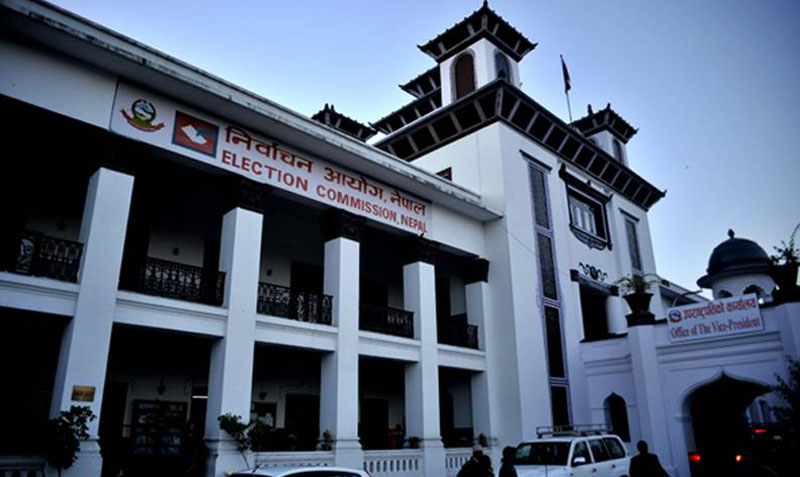
KATHMANDU, Sept 15: The Election Commission (EC) has set Rs 1.44 million as the election expenditure for a candidate contesting the upcoming parliamentary elections under the first-past-the-post (FPTP) electoral system. A candidate contesting the provincial assembly elections, however, can spend half the amount allowed to be spent by a candidate contesting the parliamentary polls.
In an interaction with the leaders of the political parties willing to contest the upcoming elections, Chief Election Commissioner Ayodhee Prasad Yadav proposed Rs 150,000 for a candidate contesting the parliamentary elections under the proportional representation system while a candidate contesting the provincial assembly polls under the same system will have to limit his or her expenditure to Rs 75,000.
"We have proposed the expenditure ceilings for the candidates contesting the upcoming elections in the presence of politicians representing the parties willing to contest the elections," said Election Commissioner Narendra Dahal adding, "The expenditures proposed for poll candidates can be reduced but it will not be increased."
Leaders attending the interaction, however, said the poll expenditure for the upcoming election was impractical. They said party candidates are spending tens of millions of rupees to secure victory in the elections and the election body has failed to control such electoral extravaganzas. "Corrupt politicians are getting stronger in elections as they can spend tens of millions of rupees. It ultimately affects the leaders with clean images and the country's development suffers the most," said Prem Suwal, a leader of Nepal Majdoor Kisan Party, stressing enforcing the expenditure ceiling.
The election body said poll ceiling was fixed considering inflation, market price, electoral constituencies and number of voters. The poll expenditures set by the election body are higher than those of the previous elections. The EC had set Rs 919,000 as the poll expenditure for a candidate contesting the elections under FPTP in 2013's Constituent Assembly elections.
2013's election expenditure limit was almost double than what the EC had allowed a candidate to spend in 2008's CA elections. A candidate was asked not to exceed Rs 459,500 for his/her poll campaigns in 2008's CA elections.
Leaders who had contested the elections in recent elections said the expenditure ceiling set by the election body was totally impractical. Politicians who contested in the recent local elections said each candidate contesting for the post of mayor spent at least Rs 10 million. Candidates interviewed by Republica said it was not possible to secure victory in the elections without spending at least Rs 15-20 million. "Irrespective the election expenditure details submitted by the candidates to the election offices, it is not possible to win the mayoral race without spending Rs 15-20 million," said a campaigner involved in the publicity campaign of a mayoral candidate of a sub-metropolitan city in Province 5.
Politicians say poll expenditures will shoot up in the upcoming parliamentary and provincial assembly elections since the electoral constituencies in these elections are larger than the local units. There will be only 165 electoral constituencies for the upcoming parliamentary elections under the FPTP electoral systems while there are 753 local units.
Former election commissioner Neel Kantha Uprety said election expenditures set for the candidates always remains impractical. "The ceiling rarely gets implemented in practice. It will be really wonderful if any candidate wins the elections without breaching the ceiling," said Uprety adding, "But it is hard to believe so."
Asked about the impractical poll expenditure ceiling, EC commissioner Dahal said candidates flouting the poll expenditure ceiling will be booked. "We are not aware of candidates flouting the poll expenditure ceiling fixed by the EC. We will certainly book the violators in accordance with the election code of conduct if anyone comes up with the evidence," said Dahal.
Ahead of 2013's CA elections, the EC had proposed to the poll-participating parties to collect funds through the banking system, concluding that it could help to hold parties transparent and accountable. But most of the parties failed to maintain the account of their poll expenses despite their pledges.
Nepal's political parties, which are still beyond the jurisdiction of corruption controlling agencies, are considered as corrupt institutions. A survey conducted by the Berlin-based Transparency International in 2011 had ranked Nepal's political parties as the most corrupt institutions followed by the legislature and the police as the second and third corrupt institutions respectively.
You May Like This
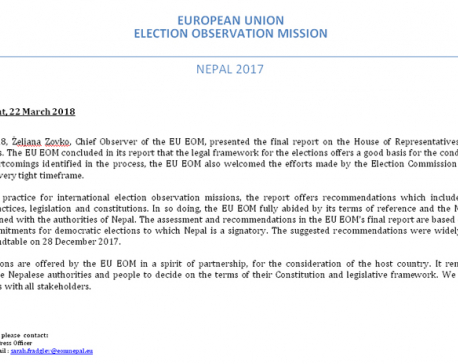
EU issues statement, govt boycotts consultative meeting
KATHMANDU, Mar 23: EU EOM released a statement saying that the “assessment and recommendations in the EU EOM’s final report... Read More...

Govt boycotts consultation meeting organized by EU poll observation mission
KATHMANDU, Mar 23: In a clear manifestation of souring relations between the government and the European Union (EU) in Nepal, government... Read More...

VP, VC elections today
MARCH 18: Elections for Vice President and National Assembly’s vice chairperson is scheduled for today. ... Read More...

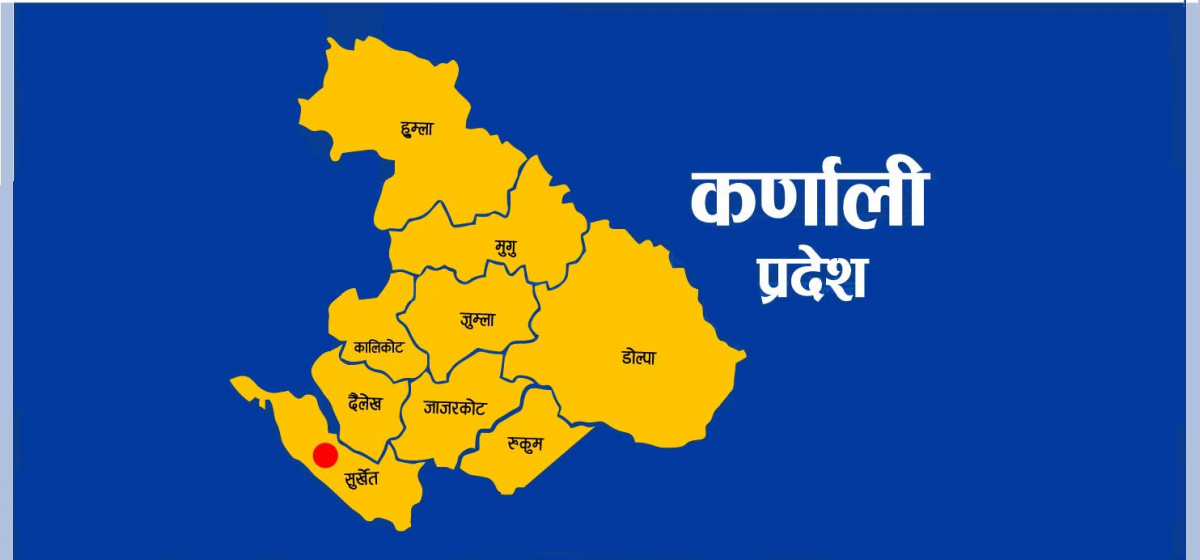

Just In
- Kathmandu witnesses surge of 2,000 new commercial bank branches in six years
- Crops and livestock special production zone scheme implemented in 10 districts of Karnali
- Rising food prices cause business slowdown
- Madhesh Province Assembly meeting postponed after Janamat’s obstruction
- Relatives of a patient who died at Karnali Provincial Hospital 6 days ago refuse body, demand action against doctor
- Khatiwada appointed as vice chairman of Gandaki Province Policy and Planning Commission
- China's economy grew 5.3% in first quarter, beating expectations
- Nepal-Bangladesh foreign office consultations taking place tomorrow



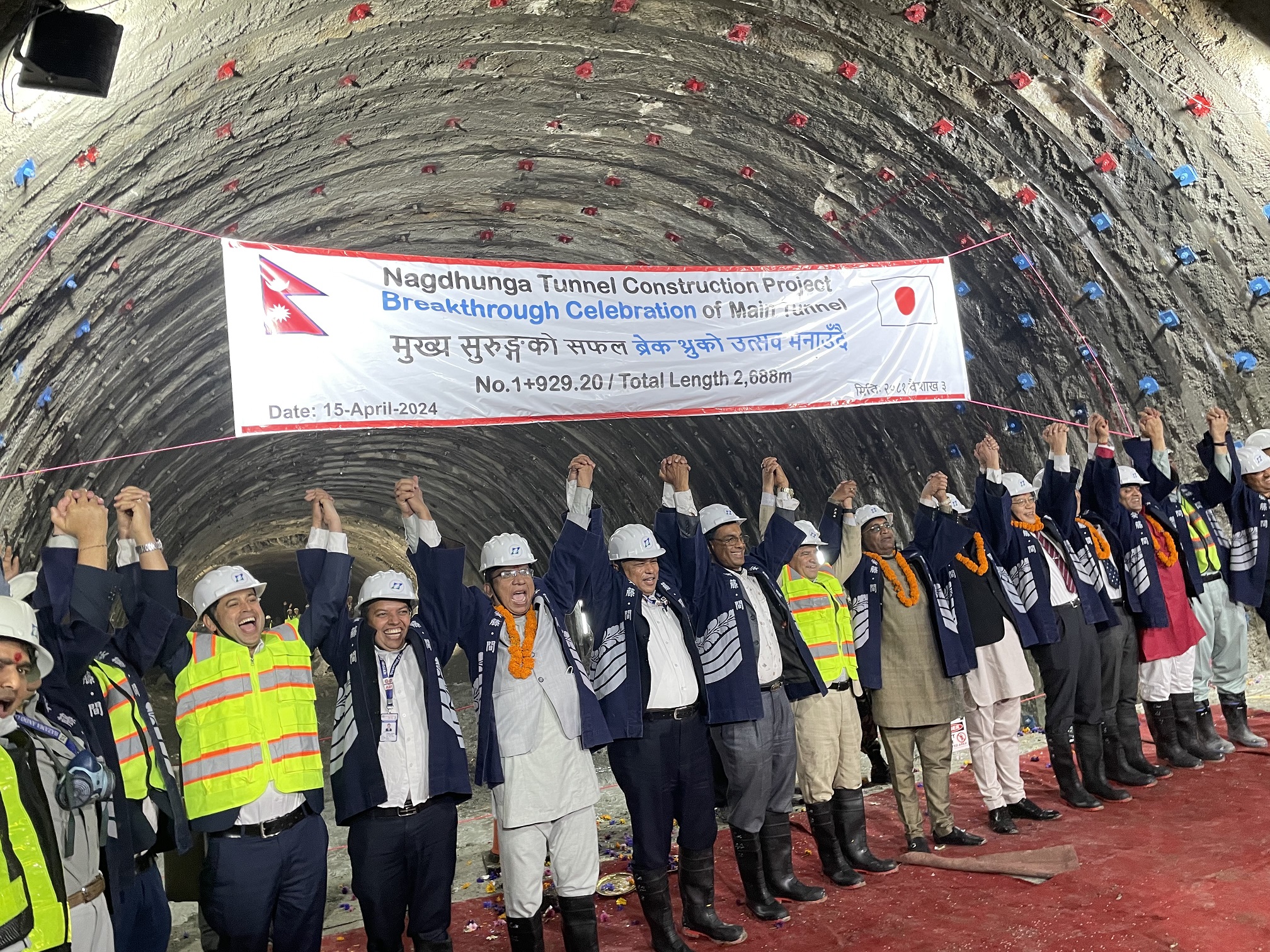



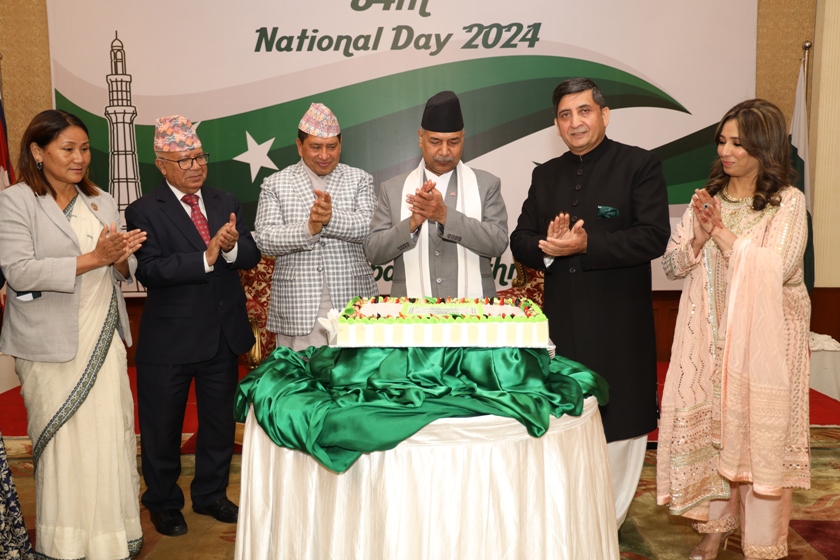

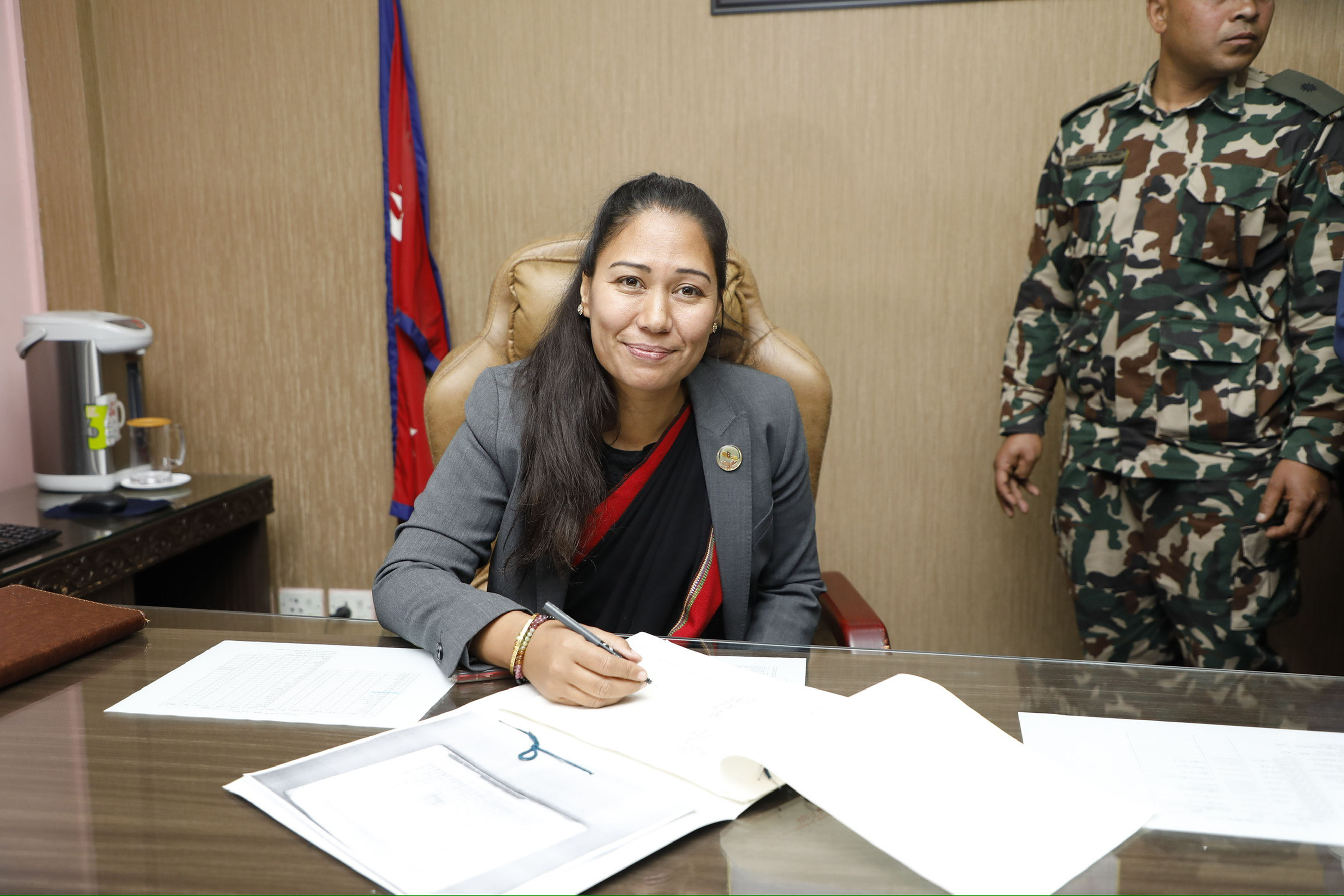

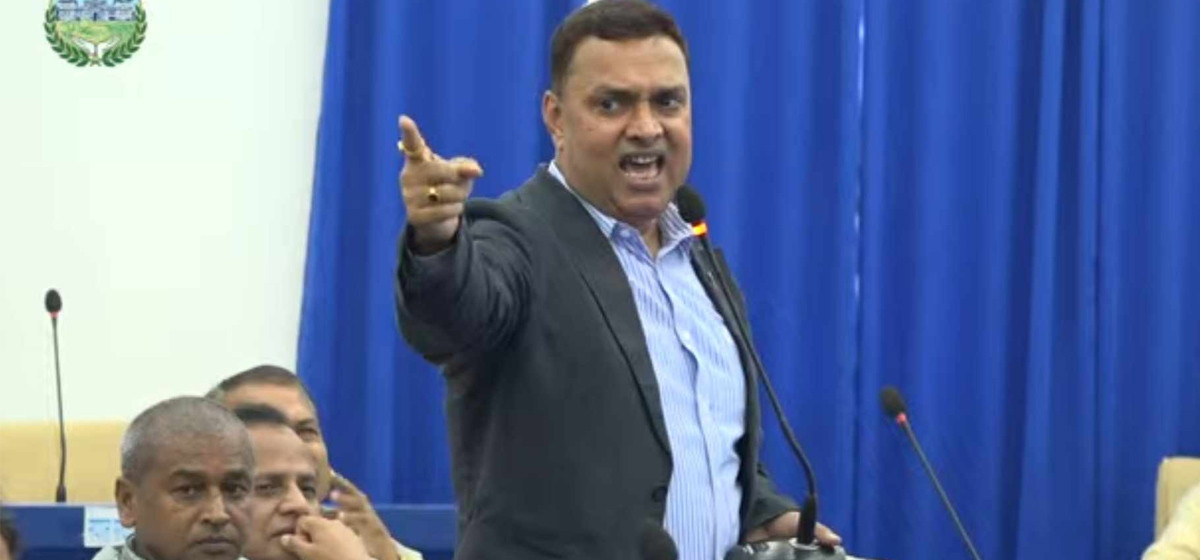
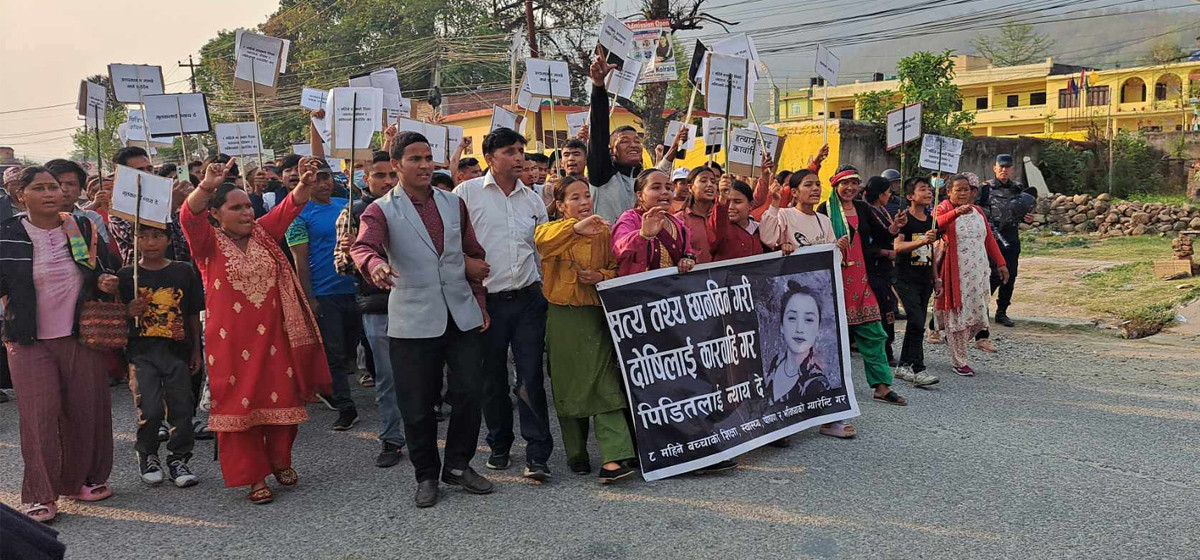
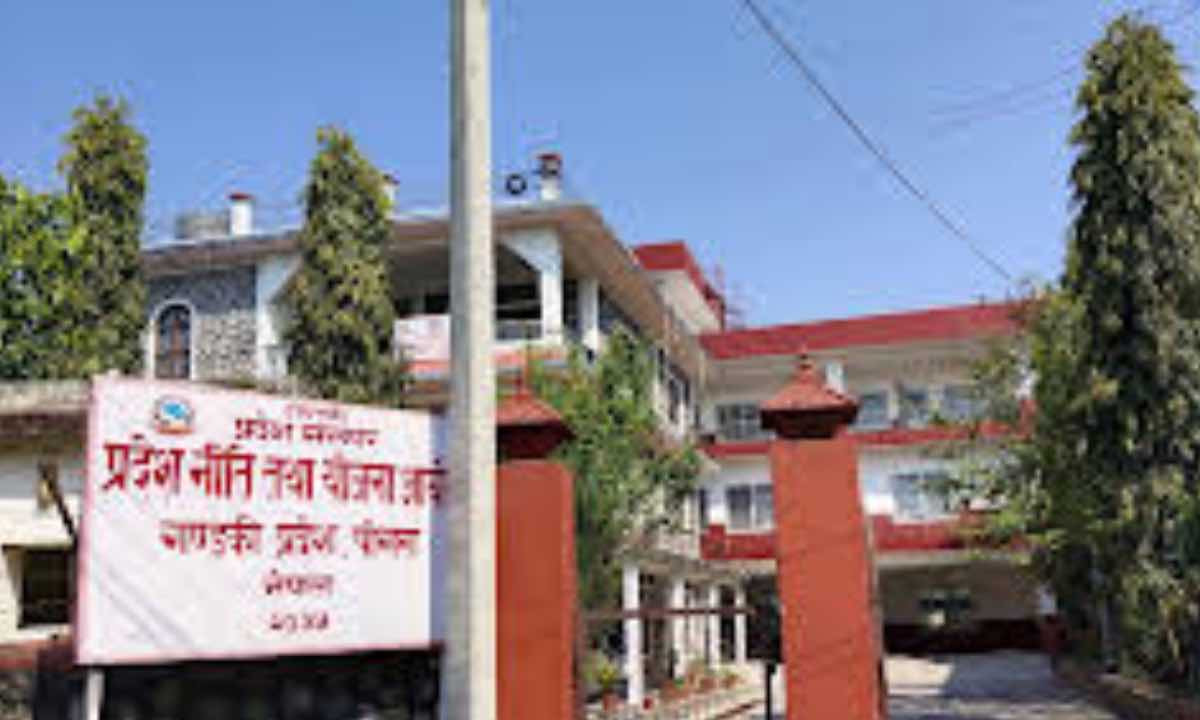

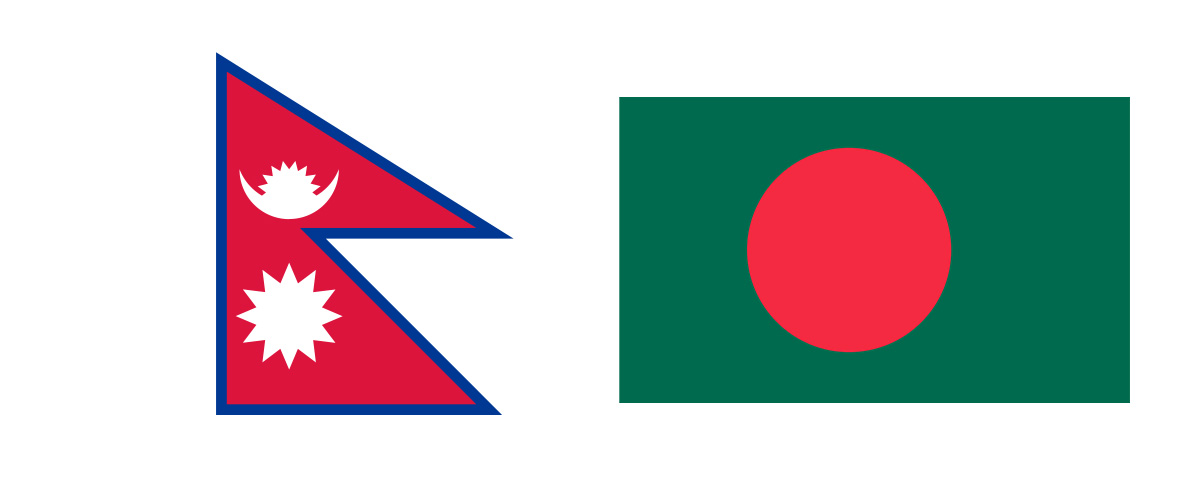
Leave A Comment